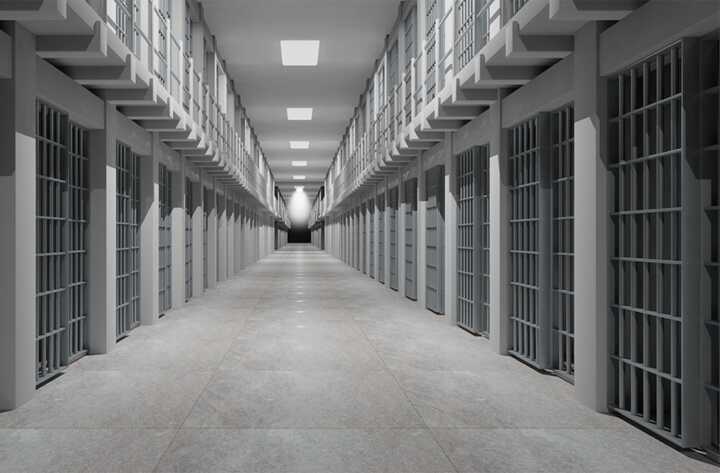El Salvador has offered to take in criminals deported from the US, including those with US citizenship, and house them in its mega-jail.
The deal was announced after US Secretary of State Marco Rubio met Salvadorean President Nayib Bukele during his visit to the central American nation.
Bukele - whose iron-fist approach to gangs has won him plaudits from voters but been heavily criticised by human rights groups - said he had offered the US "the opportunity to outsource part of its prison system".
Rubio said the US was "profoundly grateful" to Bukele, adding that "no country’s ever made an offer of friendship such as this".
Rubio told reporters: "He has offered to house in his jails dangerous American criminals in custody in our country, including those with US citizenship and legal residency."
Referring to two of the region’s most notorious transnational crime gangs, Rubio added that El Salvador would also take in deported migrants and "criminals from any nationality, be the MS-13 or Tren de Aragua".
Bukele later confirmed the offer on X, specifying that "we are willing to take in only convicted criminals (including convicted US citizens) into our mega-prison (CECOT) in exchange for a fee".
He added that "the fee would be relatively low for the US but significant for us, making our entire prison sustainable".
Since he came into office in 2019, Bukele has made cracking down on crime his government’s priority.
The newly built maximum-security jail he referred to, Cecot [Terrorism Confinement Centre], is at the centre of his drive to lock up and punish the most violent gang members.
The government celebrated the opening of the jail - which it says can hold up to 40,000 inmates - by releasing photos and videos of shaven-headed and tattooed prisoners stripped down to the waist being frogmarched along its corridors.
The treatment of inmates at Cecot, where scores of inmates are locked up in each windowless cell, has been criticised by rights groups.
But Bukele’s crackdown on crime continues to be very popular with the vast majority of Salvadoreans who say they can go about their lives without threats from gang members for the first time in years.
However, some relatives of the tens of thousands of people which have been rounded up and jailed under emergency measures brought in by Bukele say their loved ones have been wrongfully rounded up in sweeping police round-ups.
Amnesty International has criticised the "gradual replacement of gang violence with state violence" in the country - a criticism dismissed by Bukele, who points out that his hardline approach to crime last February won him re-election to a second term with more than 84% of the votes.
El Salvador was the second stop on Secretary of State Rubio’s first overseas tour as the US top diplomat.
His first stop was Panama, where he demanded that Panama make "immediate changes" to what he called the "influence and control" of China over the Panama Canal.
On Tuesday, he will hold meetings with officials in Costa Rica and Guatemala expected to focus on migration as well as countering Chinese influence in the region.
Since coming to office, US President Donald Trump has focused on speeding up the removal of undocumented migrants, with the promise of "mass deportations".
Read more similar news:
Comments:
comments powered by Disqus


































